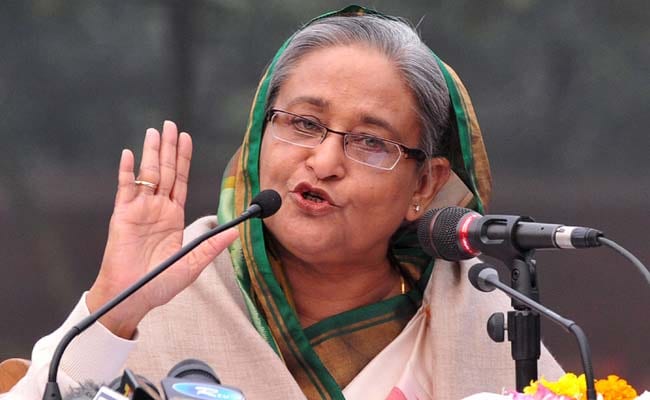
Two more opposition activists were killed in a new bout of political violence in Bangladesh today after the US voiced grave concern about the unrest and slammed a spate of "unconscionable" firebombings.
Police shot dead an Islamist protester from the Jamaat-e-Islami party and wounded two more after they threw a molotov cocktail at a police van in Rajshahi, northwest of Dhaka, after midnight today, local police chief Alamgir Hossain told AFP.
"Three police constables were injured in the clashes," he added.
Another Jamaat supporter was killed in the western city of Jessore during a shootout with officers, police told reporters.
Rights groups say the shootouts are fake and are nothing but cold-blooded executions of opposition activists.
A total of 65 people have been killed in political violence in the last month, according to an AFP tally, as an opposition alliance tries to force the resignation of Prime Minister Sheikh Hasina.
Many of the victims have been travelling on trains or buses that have been firebombed by opposition activists as part of an ongoing transport blockade designed to bring the government to its knees.
The US State Department issued a statement late Thursday saying there could be "no justification" for such violence while also calling on the government to allow peaceful protests.
"The United States is gravely concerned by the ongoing unrest and violence in Bangladesh," deputy state department spokesperson Marie Harf said in the statement.
"We deplore the unconscionable attacks including bus burnings, throwing incendiary devices, and train derailments that have killed and wounded innocent victims.
"There is simply no justification for such actions in a democratic Bangladesh," she added, urging the government "to provide the necessary space for peaceful political activity".
The unrest began when security forces confined main opposition leader Ms Khaleda Zia to her offices after she threatened to lead a mass rally against Ms Hasina's government on January 5, the first anniversary of disputed polls.
A confined Ms Zia then called for a nationwide blockade of roads, railways and waterways in an effort to topple Ms Hasina's government and pave the way for a new polls under a neutral government.
The blockade unleashed unprecedented violence with anti-government protesters targeting buses and trucks with petrol bombs.
The government has deployed thousands of security forces nationwide and arrested some 10,000 protesters as part of a crackdown on the unrest.
Thousands more demonstrators have gone into hiding and Ms Zia has remained holed up in her office, after her internet, mobile phone and satellite television connections were cut.
Track Latest News Live on NDTV.com and get news updates from India and around the world

